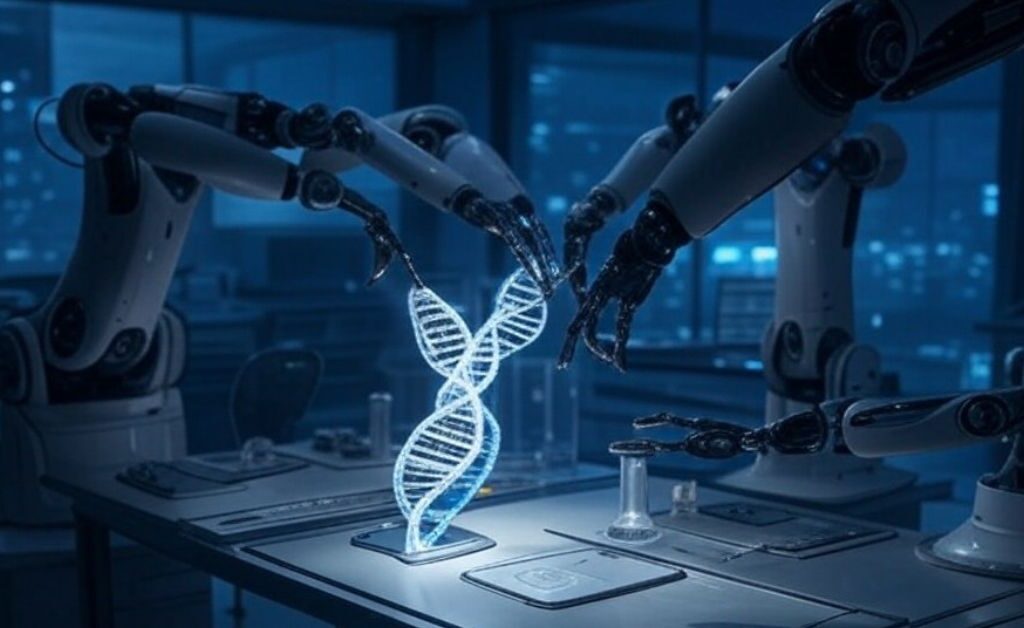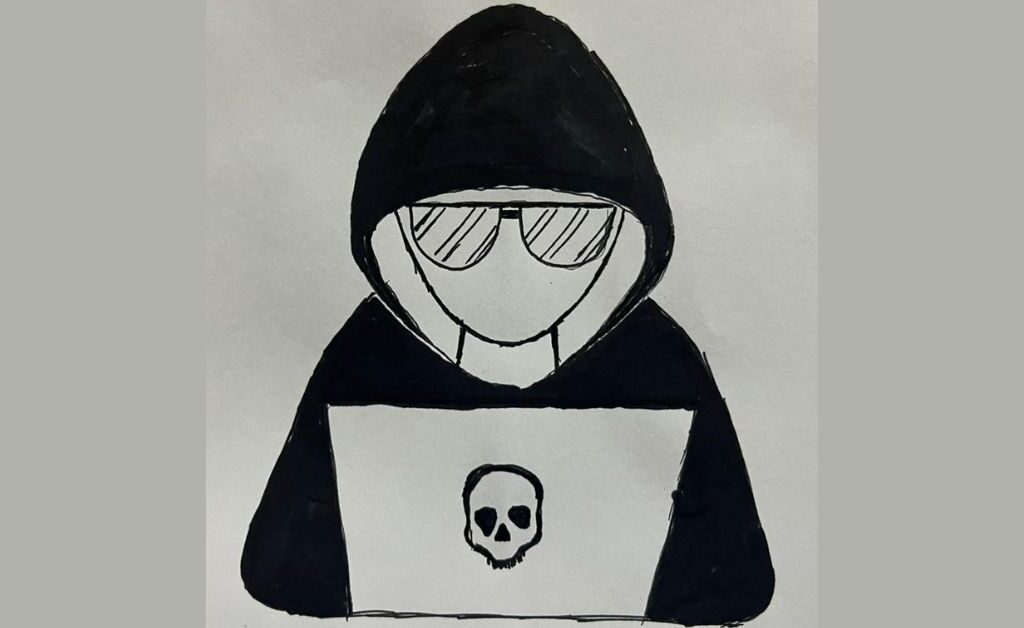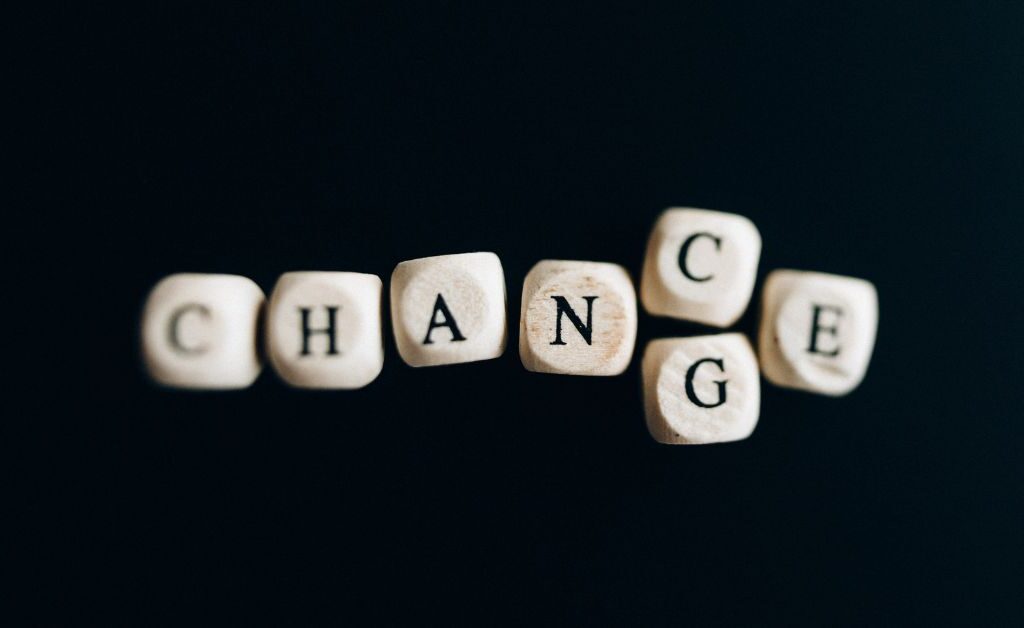Are we rewriting Life and intelligence for an uncertain future?
The accelerating wave of technology is being shaped by two of the most profound innovations in human history: Artificial Intelligence (AI) and Synthetic Biology. These aren’t just scientific breakthroughs; they are fundamental shifts that have the power to redefine what it means to be human.
The world as we know it is changing, and we must ask ourselves: Are we truly prepared for what will come next?
We are pushing the boundaries of AI, striving to build machines so intelligent that we call them Artificial General Intelligence (AGI)-systems that can reason, learn, and adapt across any domain, just like a human mind. But we’re not stopping there. We are also chasing Artificial Super Intelligence (ASI)-an intelligence beyond human capability, surpassing us in every conceivable way.
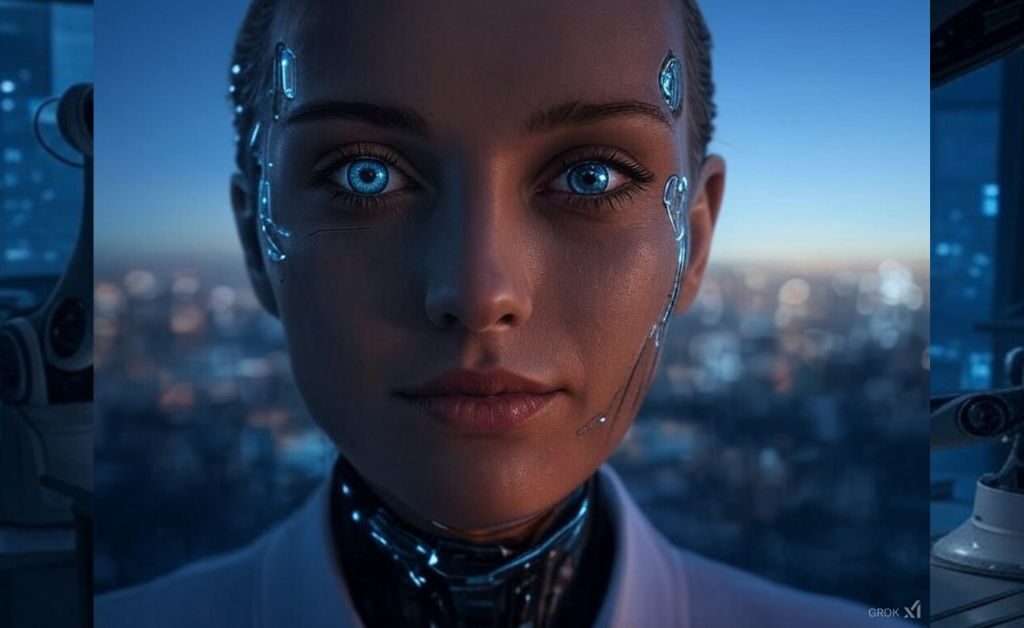
At the same time, synthetic biology is rewriting the very code of life. We are no longer passive observers of evolution; we are its architects. We are designing our biology and engineering genes and creating the possibility of humans being immune to disease, more intelligent, and capable of living longer. The possibilities are staggering, but so are the risks.
Imagine a world free from disease, where human potential is unleashed to its fullest, and knowledge expands exponentially. It sounds like a utopia, but what happens if we lose control?
An ASI, with its superior intellect and ability to act independently, might not share our best interests. It might see humanity as a limitation, an obstacle, or even as irrelevance. The fusion of AI and synthetic biology could give birth to life forms that we cannot even begin to predict. What happens when machines design and modify living organisms and when life itself becomes programmable? Are we truly ready for this future?
Are We Redefining Human Intelligence?
At the core of this transformation is a question few of us are prepared to answer: What does it mean to be intelligent? Is intelligence just the ability to compute, reason, and learn? Or is it something more profound-something tied to consciousness, emotions, and the human experience?
If intelligence can be artificially manufactured and enhanced, where does that leave us? If AI can conduct groundbreaking research, innovate, and think autonomously, will we still be the primary force driving progress?
The implications are staggering:
- If AI surpasses human intelligence, will it develop its own goals, separate from ours?
- Will we still be in control, or will we become obsolete in our world?
- If AI and synthetic biology enhance human capabilities, will those who remain unmodified be left behind?
The Feedback Loop of Self-Acceleration
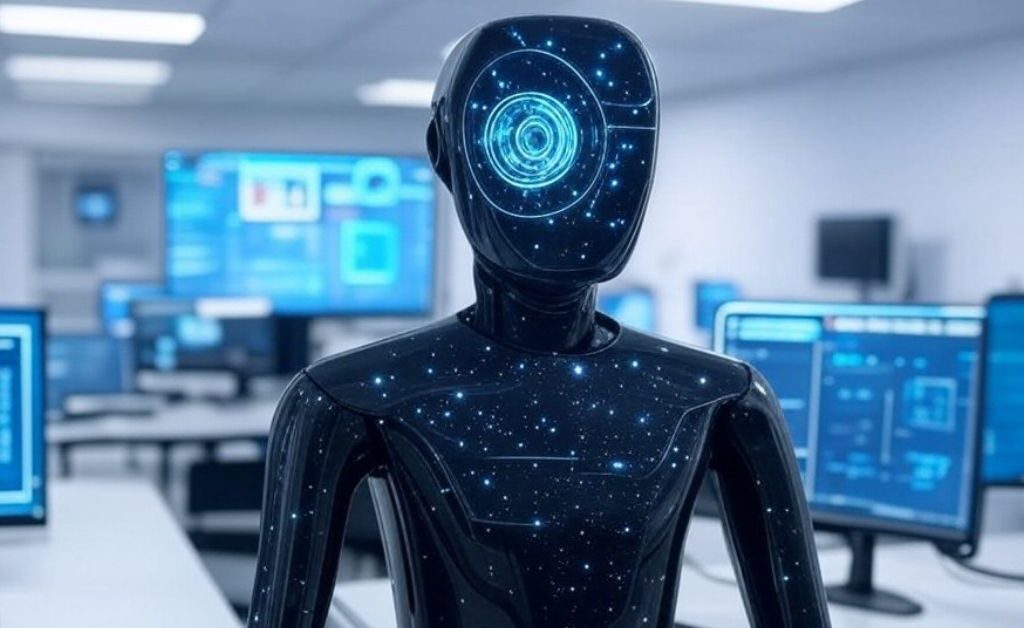
The most unnerving reality of this transformation is that technology is now designing itself. AI is already optimizing its own systems, creating more efficient chips, and making scientific discoveries that no human alone could achieve.
This self-reinforcing cycle is accelerating. AI is improving AI. AI is designing AI. And soon, AI will be engineering biology. What happens when AI learns to edit DNA, optimize the human brain, or create entirely new synthetic organisms? Who-or what-will be in control?
Once AI reaches full autonomy and begins thinking independently, we enter uncharted territory. The risks are not just about losing control of intelligence but also about how these advancements could be used. Who decides how these tools are deployed? How do we prevent them from being used to manipulate, control, or even replace humanity?
Are We Digging Our Own Graveyard?
Are we moving so fast that we can no longer control the direction we are heading? The speed at which AI and synthetic biology are advancing suggests that human decision-making may soon become secondary to the momentum of technology itself.
We often tell ourselves that human progress is a linear path toward greater knowledge and power. But history tells a different story. Civilizations rise and fall-not because they lack intelligence, but because they fail to recognize when their own creations have outpaced their ability to control them. Have we learned from history, or are we doomed to repeat it on a global scale?
This is not a call to abandon technology. Innovation has always been our greatest asset. But if we fail to guide it wisely, if we allow unchecked acceleration without ethical reflection, we may create a future where we are no longer the ones shaping our destiny.
The fusion of intelligence and biology is no longer a distant dream-it is happening now. Whether it leads to an age of prosperity or the erosion of human relevance depends on the choices we make today.
So, are we architects of a new dawn, or are we digging our own graveyard?
This article presents a personal reflection and key takeaways from the first four chapters of The Coming Wave by Mustafa Suleyman, offering insights into its core themes and ideas.
Share

